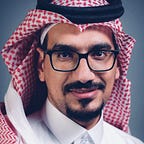The Question is the Answer
We are living through a historical moment, this time in history. The whole world has not merely shifted, it has been turned upside down. One microscopic virus had the power to shut down the world as a whole, and this tiny, unseen thing has forced us to pause.
Now, what shall we do with this moment?
I find I have more questions than answers.
Do we explore what it means to be human?
Do we imagine who we can become?
Do we contemplate what it means to be here, and to be together, although we are isolated from one another?
What are the guiding principles and the universal values that we hold as a human?
How will they guide us to coexist?
I believe everyone, everyone on this earth has a role to play and has a message to share. Whether we are making an impact in a small circle and or on a large one. But we are making an impact as an individual and as a leader. The question is our role, our purpose, positive or negative? Helpful or harmful? Selfish or selfless?
If we take this time to expand our consciousness, our awareness, and our being, the world will be better for it. This time, this challenge, this crisis can teach us a great deal.
Are we listening?
The one who will learn is the one who listened; the one who is aware and the one who acts.
First, we need to believe that we matter, as a human, as an individual. We are essential, and we are here for a reason. Then we can find a humility that takes us out of selfishness and moves us toward one another. We can then ask,
How can we coexist in this ecosystem?
How can we take a more compassionate stance with ourselves and others then look at the world from that perspective?
And how exactly do we change our perspective?
There’s a popular story circulating lately that helped me get some clarity.
“Years ago, the anthropologist Margaret Mead was asked by a student what she considered to be the first sign of civilization in a culture. The student expected Mead to talk about clay pots, tools for hunting, grinding-stones, or religious artifacts.
But no. Mead said that the first evidence of civilization was a 15,000 years old fractured femur found in an archaeological site. A femur is the longest bone in the body, linking hip to knee. In societies without the benefits of modern medicine, it takes about six weeks of rest for a fractured femur to heal. This particular bone had been broken and had healed.
Mead explained that in the animal kingdom, if you break your leg, you die. You cannot run from danger, you cannot drink or hunt for food. Wounded in this way, you are meat for your predators. No creature survives a broken leg long enough for the bone to heal. You are eaten first.
A broken femur that has healed is evidence that another person has taken time to stay with the fallen, has bound up the wound, has carried the person to safety and has tended them through recovery. A healed femur indicates that someone has helped a fellow human, rather than abandoning them to save their own life.” — excerpted from Remy Blmenfeld’s piece in Forbes.
So, my recent questioning has brought me to a single thought from which I will not waiver.
Transformation begins with listening to the innate and human desire to serve.
When we relinquish the fear, which is a selfish and futile pursuit, for the higher, more conscious choice, then we are in a position to truly lead.
My question to you is, “How are you leading today?”
